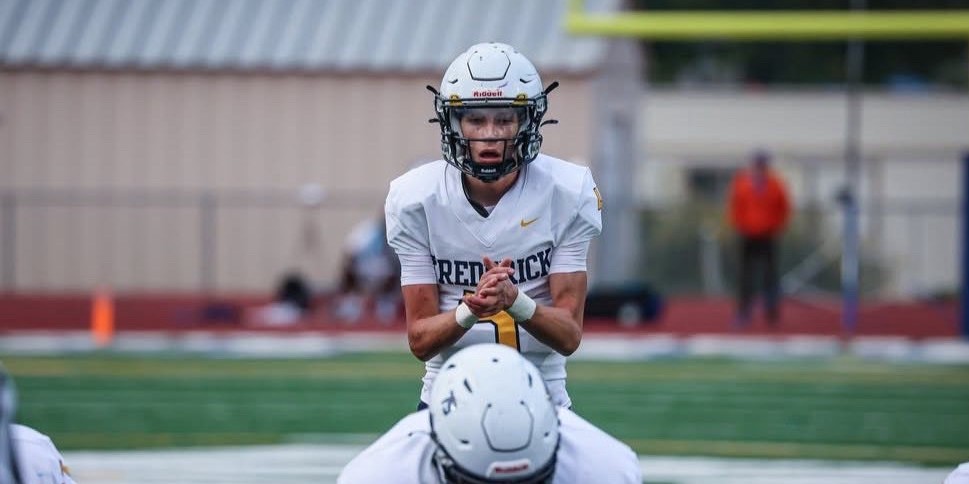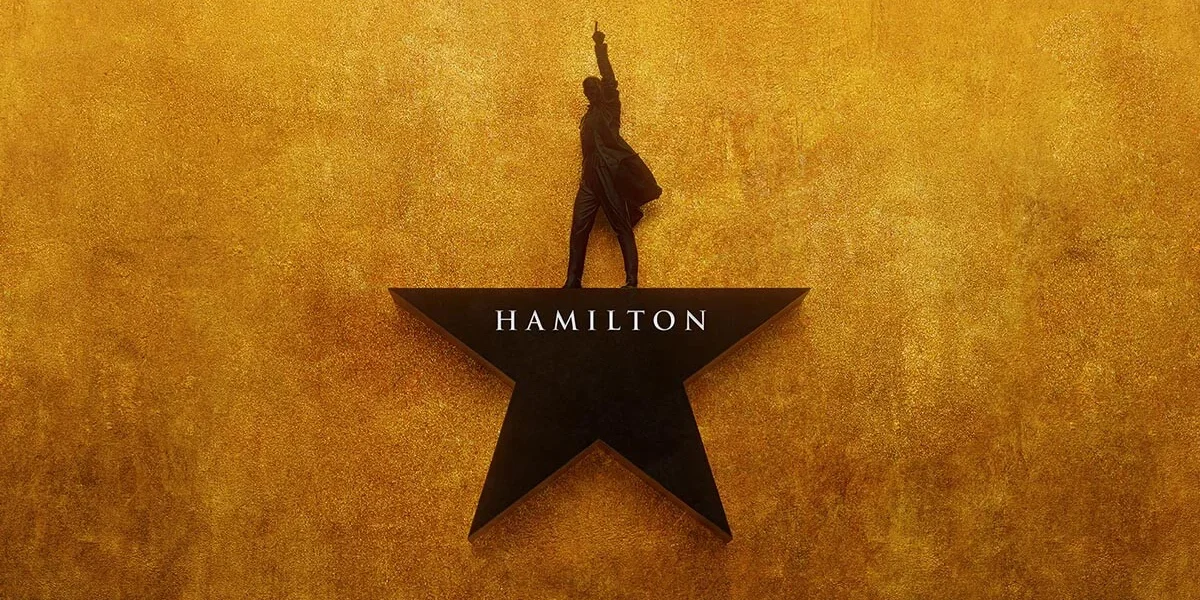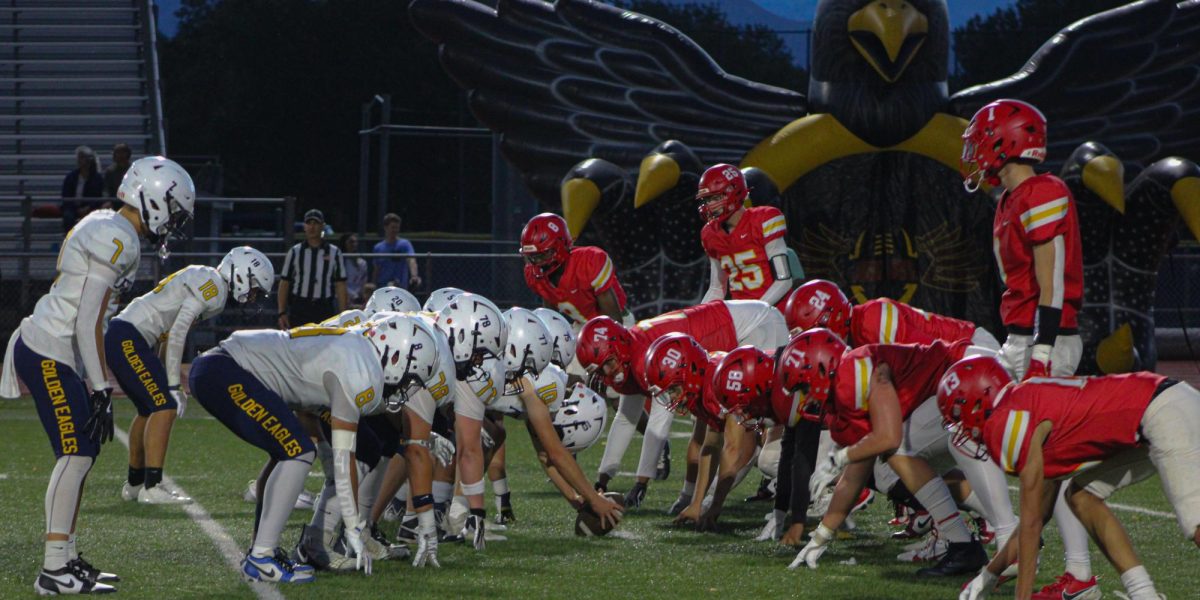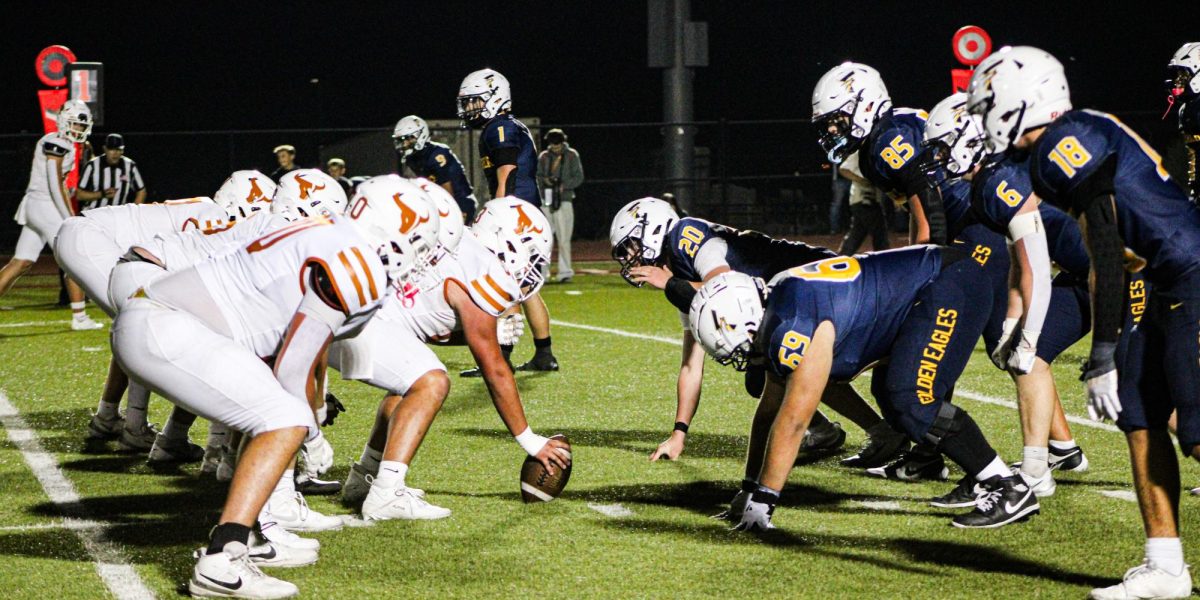Like all presidential election years, the 2024 ballot is full of different ballot issues, from abortion rights and same-sex marriage to allowing pot shops and school funding. This includes:
- 7 amendments to the Colorado Constitution: It takes a 55% majority to add language to the Colorado Constitution but only a 50.1% majority to remove language from it. Amendments proposed by the Colorado General Assembly are labeled with letters while those proposed by citizens use numbers.
- 2 tax-change propositions: According to Colorado’s Taxpayer Bill of Rights (TABOR), any changes the Colorado General Assembly wants to make to taxes must be approved by voters. A simple majority is needed to pass. These are labeled with double letters.
- 5 citizen-initiated propositions to change state statutes: These are changes to state laws put on the ballot by collecting signatures. A simple majority is needed to pass. These are labeled using numbers over 100.
- Over 100 local measures across the state: We’ll list all the local ballot issues that will appear on the ballots of Frederick, Firestone, and Dacono residents, along with a mention of measures that may appear on the ballots of Frederick High students who live in Longmont, Erie, Mead, and Fort Morgan.
Using information from the 2024 Colorado State Ballot Information Booklet, we’ll break down what each measure intends to do, the arguments for voting yes, the arguments for voting no, and how the measure might affect students both here at Frederick High and across the state.
By the way, we also have articles on how to register to vote if you are 18 and haven’t done so yet and on the candidates running for office on this year’s ballot.
 Amendment G: Tax Help for Veterans with Disabilities
Amendment G: Tax Help for Veterans with Disabilities
As thanks for serving in our military, veterans get special property tax benefits. Veterans over 65 that have been in their house for 10 years, Gold Star spouses (those whose partner died serving in the military or as a result of an injury sustained in combat), and vets with a 100% permanent disability (according to a medical doctor) all receive a 50% reduction on their property taxes. This benefit came to an average of $560 saved per household last year.
A “yes” on this amendment would change a veteran needing to be “100%” disabled to qualify for this tax reduction to any veteran who qualifies for a Total Disability Individual Unemployability (TDIU) rating from the Department of Veteran’s Affairs. A TDIU is not a medical diagnosis but an evaluation of the extent of the injury and the injured veteran’s ability to hold a job and provide for themselves. This change would not remove any veteran currently meeting the 100% disabled threshold from the tax benefit even if they have a steady job, as all permanent injuries automatically qualify for a TDIU rating.
- Arguments for yes: Veterans who are unable to work need monetary relief–some even more than vets with a 100% permanent disability but who can still work a job. This also brings the state in line with how the federal government determines veteran benefits, as they use TDIU ratings.
- Arguments for no: While a permanent injury is easy to identify, a TDIU rating is complex and can change over time. This complexity could lead to delays in tax assistance being granted, and the additional 37,000 Colorado veterans would cost the state around $1.8 million in lost tax revenue.
- Impact on students: There would be direct benefits for students living in a household with a veteran that has a TDIU rating but not a 100% permanent disability. The additional tax burden may indirectly hurt students if it leads to a reduction in state education spending
 Amendment H: New Judicial Discipline Board
Amendment H: New Judicial Discipline Board
Judicial misconduct happens when a judge acts unethically or inappropriately toward other judges, jurors, or witnesses both in and outside the courtroom. This behavior can include improper demeanor, harassment and disrespect, and drug or alcohol abuse.
Currently in Colorado, anyone experiencing misconduct from a judge can file a complaint to the Commission on Judicial Discipline (CJD). In accordance with the Colorado Constitution, members of the CJD are appointed by both the Governor and the Colorado Supreme Court. The CDJ is made of two district court judges, two county court judges, two lawyers who have practiced law in Colorado for 10 years, and four citizens that are not lawyers or judges.
The CJD investigates every complaint and will either dismiss the complaint, hold an informal hearing with an informal punishment (that is never released to the public), or initiate formal hearings in front of a panel of judges selected by the Colorado Supreme Court. After a formal hearing, the CJD reviews the panel’s findings and sends recommendations for punishment to the Colorado Supreme Court, who makes a final ruling. Punishments can include private reprimand, public censure, temporary suspension, or even permanent removal.
A “yes” on Amendment H would change the judicial discipline process above by replacing the underlined panel of judges with a permanent Independent Judicial Discipline Adjudicative Board. The 12-person Board would have four district court judges “without any disciplinary history,” four lawyers without prior sanctions, and four citizens appointed by the Governor and confirmed by the State Senate to a five-year term. The board would select one judge, one lawyer, and one citizen to preside over any formal hearing and make the final ruling for the case. While these decisions could be appealed to the Colorado Supreme Court (or, if a Supreme Court justice is being sanctioned, a tribunal of random judges from the Colorado Court of Appeals), the Board would then have final approval or rejection over an appeal.
- Arguments for yes: Judges in Colorado shouldn’t have a say on the punishments of their co-workers or other judges they may know, as it is a conflict of interest. Adding this Board would increase transparency and enhance trust in the court system. The majority of the Colorado General Assembly and members of the Colorado Judicial Branch suggest that this amendment would be good for the courts.
- Arguments for no: This change adds a lot of complexity to the judicial discipline process. The current system works, and judges know how to be impartial in a ruling (or can recuse themselves just like in any other case). If this amendment is approved, then normal citizens can have a say on if a judge should be punished without knowing the law or judicial procedure. Furthermore, this Board seems nearly identical to the CJD and would cost taxpayers an extra $50,000 a year to fund.
- Impact on students: This won’t affect students unless their family member happens to be a judge that is being disciplined.
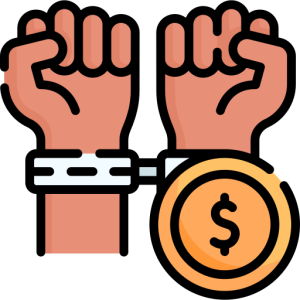 Amendment I: No Bail for First Degree Murderers
Amendment I: No Bail for First Degree Murderers
When the Colorado Constitution was ratified in 1876, it guaranteed every person accused of a crime a right to bail except for instances where an offender may flee, be a risk to the general public, or had committed “capital offenses,” which is defined in the document as crimes where the death penalty was sought, including first degree murder.
In July 2020, the Colorado General Assembly repealed the death penalty in Colorado. However, as the death penalty was key in defining certain parts of the constitution, this left some ambiguities in the law.
A “yes” on this amendment would fix one of these ambiguities. This measure would amend Section 19 in the Colorado Bill of Rights to allow judges to deny bail for “the offense of murder in the first degree,” which Colorado statutes define as a murder that was 1) premeditated intent to kill, 2) an extreme indifference to human life that resulted in death, 3) killing a child by giving them a controlled substance on school grounds, and 4) knowingly causing the death of a child under 12. Denial of bail would not be automatic and would still be determined by a judge.
- Arguments for yes: Colorado was founded on the understanding that some crimes are so serious that the offender should not be allowed to walk free among the general public even before they are tried. This amendment fixes a legal loophole that has allowed nearly 500 persons that have committed first-degree murder in the state since 2020 the right to bail, which has put our citizens in danger.
- Arguments for no: Colorado was founded on the understanding that a person is innocent until proven guilty, and that time served by an innocent person is not justice: this is why the Colorado Bill of Rights includes bail as a right. There is no “loophole” that allows dangerous murders to run free, as judges already have the discretion to deny bail to any criminal that may pose a threat to the public if not detained pre-trial. Some judges have even gotten around this ambiguity in the law by setting bail as high as $100 million to make the felon getting out on bail practically impossible.
- Impact on students: In 2022, 54 juveniles from 10–18 were incarcerated for felony murder, and all of them were eligible for bail while awaiting trial. This change would ensure that some of these offenders would have the opportunity for bail.
 Amendment J: Removing Same-Sex Marriage Ban
Amendment J: Removing Same-Sex Marriage Ban
In 2006, Colorado voters approved an amendment to the Colorado Constitution that made a marriage between one man and one woman the only recognized union in Colorado. This means that the state constitution does not allow for same-sex marriages nor guarantees same-sex couples marriage benefits, including inheritance and the right to make medical decisions for their spouse.
In June 2015, the US Supreme Court decided in Obergefell v. Hodges that same-sex marriages were to be recognized as valid in every state, including Colorado. This decision has rendered the 2006 amendment unconstitutional and unenforceable.
A “yes” vote on this amendment would remove the definition of marriage as “one man and one woman” from the Colorado Constitution. This language would not be replaced with a new, different definition of marriage.
- Arguments for yes: According to the 2020 Census, there are 14,148 same-sex married couples in Colorado. If the US Supreme Court were to overturn Obergefell and revert recognition of same-sex marriages back to the states, then these couples would lose all legal protections to their marriage overnight. By removing this language from the Colorado Constitution, it helps ensure that these couples would not lose their rights with a new Supreme Court ruling.
- Arguments for no: Whether due to religious or personal reasons, many Coloradoans believe that marriage should only be between one man and one woman: they believe that the 2006 amendment represents the will of the people of the state, and should the US Supreme Court overturn Obergefell, this definition of legal marriage should be upheld. Some other opponents feel this amendment doesn’t go far enough: while it removes language banning same-sex unions, it puts no protections in the Colorado Constitution for these couples. These opponents would rather see “one man and one woman” amended to “two consenting adults” rather than taking marriage out of the constitution altogether.
- Impact on students: Whether this bill passes or not, nothing will immediately change for students, even those who are LGBTQIA+ or are children of a same-sex couple.
 Amendment K: Make Election Deadlines Earlier
Amendment K: Make Election Deadlines Earlier
Currently, citizens of Colorado have until 90 days after the end of the Colorado General Assembly’s legislative session to provide the Colorado Secretary of State signatures for any initiatives or referendums they want on that year’s ballot (this works out to roughly three months before the November election). This 90-days-after deadline is also the deadline for any judge to file with the Secretary of State that they will seek retention as their term ends. The Secretary of State then certifies who and what will be on the ballot, and then the nonpartisan research staff of the General Assembly publishes information about the ballot (the Blue Book) no later than 15 days before “the final day of voter registration” (which in Colorado is Election Day).
If Amendment K is approved, this would bump the deadlines earlier. For citizens who petition to change state laws, this would mean they have to gather signatures and file petitions no later than 83 days after the last legislative session. Same goes for judges, who would have to submit retention paperwork a week sooner. The Blue Book, meanwhile, would come out no later than 45 days before the election.
- Arguments for yes: Moving the deadlines would give state officials more time to review and format ballot information and ensure ballot accuracy, which would allow them to send ballots and ballot information to military and overseas voters earlier. As ballots grow more complex, the more important it is for our election officials to have extra time.
- Arguments for no: It’s unnecessary, as ballot information is already available to the public through the internet. Citizens need that additional week for collecting signatures more than the election officials need it.
- Impact on students: Minimal: if these dates change, it may change other deadlines for student voters, such as the deadline to register as a Student Election Judge or the deadline to register to receive a mail ballot.
 Amendment 79: Protect the Right to Abortion
Amendment 79: Protect the Right to Abortion
In 1984, Colorado voters amended the Colorado Constitution to prohibit the use of state or local government funds to pay or reimburse medical providers or insurance companies for abortion services (except when services are provided to victims of rape, pregnancy as a result of incest, or services rendered to save the life or future reproductive viability of the mother).
In 2022, the Colorado General Assembly passed statutes that guarantee all women in the state of Colorado access to abortion, and that abortion may be performed at any term before birth (though, as a matter of practice, doctors in the state only perform late-term abortions [those after 28 weeks] if the fetus is no longer viable or would pose a risk to the mother’s health).
A ”yes” vote on this amendment would change the 2022 Colorado abortion laws from being statutory (those that can be added or repealed by elected officials) to guaranteed by the Colorado Constitution (where the measures could only be removed with at 55% majority vote of the people). The Legislature could still regulate abortion so long as it would not “deny, impede, or discriminate against the exercise of that right.” Additionally, a “yes” vote would repeal the 1984 amendment blocking state and local funding for abortion services—it wouldn’t guarantee state money to abortion services, but it would allow state officials to fund or reimburse for abortion services if they choose. Since part of this measure includes repealing part of the Colorado Constitution, it requires a 55% majority to pass.
- Arguments for yes: Right now, the right to abortion is statutory in Colorado, meaning that lawmakers can repeal or restrict abortion at any time. By enshrining current abortion law into the state constitution, the right to abortion could only be removed in the future by the will of the people, not the whims of politicians. Additionally, the repeal of the 1984 amendment would allow increased abortion services for state government employees and Medicaid recipients, who currently must pay for abortion services out of pocket.
- Arguments for no: Whether due to religious or personal reasons, many Coloradoans believe that life begins at or close to conception, and that abortion is morally wrong. Not only do these citizens believe that access to abortion should be limited, if not outright banned, but they do not want their tax dollars to possibly fund a procedure they are morally against. Other opponents of this measure believe there should be a right to abortion in Colorado but that the current system is too lax and needs more regulation: they would like to see a better written version of this amendment.
- Impact on students: Very few students in the state would be affected: only 14,154 abortions were performed in Colorado in 2022, with 3% (around 423) of those performed on girls under the age of 18. Anyone under 18 must notify their parents (though theydo not need parental permission) to obtain an abortion, and this would not change with the passage of the amendment. If the measure is passed, a few more teens on government insurance or Medicaid may get access to service; if the measure does not pass, nothing will currently change for students.
 Amendment 80: Protect the Right to School Choice
Amendment 80: Protect the Right to School Choice
Statutory laws in Colorado state that students have the right to attend any public school for free regardless of “boundary lines” for a school or district. This is called “open enrollment,” and it applies to every public, charter, and public online school in the state. Open enrollment is one of the requirements for schools to receive funding from state taxes: private schools that are not open enrollment cannot get tax money.
A “yes” vote on Amendment 80 moves the right to open enroll in any Colorado school from a statutory law to part of the Colorado Constitution. Nothing would change about the current system, but it would require a vote from the people (not just a vote of politicians) to remove school choice in the future.
- Arguments for yes: This amendment would ensure that school choice is guaranteed to parents to pick a school they think is the most appropriate for their children. Open enrollment allows students to attend better-performing schools outside of where they live and keeps schools focused on being more transparent and accountable to the community.
- Arguments for no: The Colorado Constitution already guarantees a free education for every child. The benefits of open enrollment, however, have not been studied long-term, and there are concerns that open enrollment may be detrimental to the school system as a whole. Since open enrollment, diversity in Colorado schools has declined as parents “self-segregate” (St. Vrain is the fourth-most racially and economically segregated district in the state). Open enrollment also makes schools compete for students (as students correlate to funding levels), which puts more focus on extracurriculars and athletics than academics. Furthermore, the way the amendment is worded defines school choice as “neighborhood, charter, private, and home schools”—education advocates worry that this could create a legal precedent to give public funds to private schools, religious schools, and homeschooling programs through a voucher system, which would mean less money for public schools. These concerns have led the Colorado Educators Association (the union for Colorado teachers) to publicly oppose the bill.
- Impact on students: There would be no change initially. If the bill passes, future students may have funding taken away from their public schools. If the bill fails, then school choice could end at any point if the legislature votes to end it.
 Proposition JJ: Keep More Tax Money from Sports Betting
Proposition JJ: Keep More Tax Money from Sports Betting
Proposition DD, which made sports betting in casinos and online legal in Colorado, was approved in 2019. Betting profits (after payouts and federal taxes) are taxed 10% by the state, and the state can keep up to $29 million of that revenue each year—but every penny over that amount is returned to the casinos and online betting establishments (unlike a TABOR-connected bill, no money goes to taxpayers).
Last year, Colorado collected around $900,000 beyond the $29 million cap, which was then returned to the casinos. This year (fiscal year 2024), the total betting tax revenue collected is estimated to be around $30.2 million, $1.2 million over the cap.
A “yes” on Proposition DD will remove the revenue cap and keep all the taxes raised from sports betting. All additional revenue will go with the rest of the sports betting revenue to pay first for gaming law enforcement (which takes around half the money currently raised) and then into grants for water conservation projects given by the Colorado Water Fund. State projects already receiving gaming tax money include watershed health studies, improving public recreation facilities, improving storage in aquifers, drought planning for plains communities, and agricultural watering assistance to farmers.
- Arguments for yes: This additional money is better used to fund water projects than it is as a payback to casinos and operators. As Colorado’s population grows, the strains on our water resources grow as well. Keeping the extra revenue would create jobs in the water sector, whereas returning the funding would not correlate to additional sports betting jobs in the state. Instead of online betting money leaving the state for Las Vegas or New Jersey, we can use it to improve lives here. This change would also reduce the cost of administering sports betting, as enforcers would no longer have to issue and manage refunds.
- Arguments for no: Proposition DD already provides plenty of money to water projects—over the past four years, it has raised $43 million for such endeavors. Prop DD was also approved with the cap as a way to ensure limited government overreach and keep the casino industry healthy. Colorado has a history of passing measures that require extra money to be refunded, not spent.
- Impact on students: Minimal–the additional water projects may help out local communities
 Proposition KK: New Tax on Guns and Ammo
Proposition KK: New Tax on Guns and Ammo
When someone buys a gun anywhere in America, they pay the Pittman-Robertson Excise Tax, which was passed in 1937. The tax is 10% of the gun’s value for handguns and 11% for long guns, all ammunition, firearm parts, firearm accessories, and archery equipment. The tax is levied on manufacturers and importers, though much of this cost is passed onto the customer. The money raised goes to the US Fish and Wildlife Service, which uses it for hunter education programs, public target ranges, and preserving wildlife areas where game can be hunted.
Currently, the only additional tax paid for gun-related purchases in Colorado is the 2.9% state sales tax on all goods and any local sales tax, which can range from no additional taxes in Milliken to an additional 8.3% in Winter Park. The average combined sales tax rate for the state is 6.7%.
A “yes” on Proposition KK would create a Colorado-only version of the Pittman-Robertson Excise Tax. Firearm dealers, firearm manufacturers, and ammunition sellers would pay a 6.5% tax on any firearm that is working or could be made to work, machinery used to manufacture firearms and ammunition, ammunition and ammunition components, and any “gun precursor part” that is only used in the manufacture or repair (not modding) of a firearm. While retail sellers and manufacturers would be charged this tax, it would likely result in higher prices on guns and ammunition for consumers.
The money raised by this tax (predicted to be $39 million in the first year) would be used to fund firearm tax enforcement in the state (1%), crime victim services (77%), veteran mental health services (13%), youth crisis services (7.5%), and increased safety in public schools (1.5%). These specific programs were chosen because they experienced a funding increase during COVID that has since disappeared.
- Arguments for yes: Since gun violence can result in physical, emotional, and financial harm to victims, taxing firearm and ammunition sellers is an effective way to balance out their potential harm without impeding the Second Amendment right to gun ownership. While this wouldn’t necessarily decrease gun ownership in the state, it would discourage the stockpiling of firearms and ammunition. This measure also falls in line with several previous Colorado tax initiatives that tax a specific item and not all consumers, like Proposition DD (taxes on sports betting) in 2019 and Proposition EE (taxes on nicotine products) in 2020. The tax is also based on a very popular law that was even praised by the National Rifle Association.
- Arguments for no: The NRA praised Pittman-Robertson because it uses gun taxes in ways that benefit gun owners—the Colorado law does the opposite (which is why the NRA opposes it). This amendment would create an obstacle to owning a firearm, which unfairly targets those who wish to exercise their right to bear arms. It would also make it harder to operate a firearm manufacturing or retail business, which could hurt Colorado’s economy: our state has the ninth largest firearms industry in America with over 6,700 jobs tied to the manufacture or direct sale of firearms. This new law (and Pittman-Robertson) may also be unconstitutional—in 2022, the Supreme Court decided in New York v. Bruen that the only gun laws that may be passed by the states must be “consistent with the nation’s historical tradition of firearm regulation.” While taxation is not the same as regulation, only one other state taxes firearms (California, with a law passed this past June), so the measure may not withstand a legal challenge and cost taxpayers millions in defending the law in court.
- Impact on students: Legally, a citizen must be 18 to own a firearm and purchase ammunition in the US, so most students are not gun owners. However, many students at Frederick are hunters with a gun (technically owned by their parents) that they use for sport. This bill could make ammo and other supplies for their annual hunting excursions more expensive. On the other hand, the reduction of affordable ammunition and tax revenue funding school safety improvements may reduce the likelihood of school shootings in the state (Colorado has the fifth-highest school shooting victim rate in the nation, with 24 school shootings in the past five years resulting in 32 people wounded or dead). More than possibly preventing school shooting deaths, the additional obstacle to purchasing firearms could reduce teen suicides in Colorado—suicide is the leading cause of teen deaths in Colorado (which has the eighth-highest rate in the nation), and 71% of these suicides are committed with a firearm.
 Proposition 127: Ban on Big Cat Hunting
Proposition 127: Ban on Big Cat Hunting
Hunters in Colorado are required to have an annual hunting license and a hunter education certification provided by Colorado Parks and Wildlife. Each license specifies what animals it allows to be hunted and how many of those animals one person can hunt. As of 2024, bobcats can be hunted with any license without limit; mountain lions require a specific license, passage of a specific hunting test, and are limited to one kill per license; and lynx are completely illegal to hunt.
From 2020 to 2023, hunters harvested an average of 880 bobcats and 500 mountain lions each year. Neither species is endangered or threatened. Mountain lion hunting brings in $450,000 in revenue to Colorado Parks and Wildlife each year.
No lynx have been reported as killed, accidently or intentionally, in the past four years. Lynx are an endangered species and only have a population between 150 and 250 cats. Killing a lynx currently results in up to 365 days in jail or a fine of between $2000 and $10,000 (or both) and up to a lifetime ban from holding a hunting license in Colorado.
A “yes” on Proposition 127 would ban “intentionally killing, wounding, pursuing, entrapping, or discharging a deadly weapon” at any big cat (bobcat, mountain lion, and lynx) in Colorado. Violation of this law would result in up to 364 days in jail or a fine of up to $1000 (or both) and a five-year ban from getting a hunting license in Colorado. There would be legal exceptions for killing a big cat in the defense of human life or livestock, by a wildlife management employee, as a result of a car (or train) accident, or for scientific research. Only one other state—California—bans bobcat and mountain lion hunting, though Arizona, Illinois, and Indiana are considering adopting bills like Prop 127.
- Arguments for yes: Many Colorado citizens find the hunting of big cats immoral, as they kill an innocent living being and are not used for food. Most of the baits, lures, and live traps are considered inhumane by animal rights groups. As big cats can be violent, there is still legal protection for self-defense against a big cat, so this measure would not put livestock at an additional risk. Big cats also self-regulate their populations, and there is no evidence that their populations could explode to the extent that they would need to be culled like deer or elk. In fact, big cats help control the growing deer, rabbit, and elk populations by preying on them for food. Passage would also save the state around $77,000 a year in agricultural payouts for livestock killed by mountain lions.
- Arguments for no: Hunting is already difficult in Colorado, as licenses are in high demand and often require a lottery. Eliminating mountain lions as big game would further squeeze the hunting industry in Colorado. Only around 10% of the mountain lion population is killed each year, the license is one of the more difficult to get, and it’s currently illegal to kill a lioness with kittens or use inhumane methods to catch or kill a mountain lion. It is not realistic to say that hunters will endanger mountain lions or bobcats, as both populations are growing in size and are sometimes considered a “nuisance” species. While lynx is endangered, it is already protected from hunting through penalties much stricter than those offered by this law. Furthermore, removing mountain lions from big game classification would prevent ranchers from getting monetary damages from the state when a mountain lion kills their livestock. While this may save the state money, passage of the law would cost the state around $175,000 over the next two years in legal counsel to determine how to enforce this law. This amendment would also hinder scientific research into big cats and their prey species and limit how CPW can respond to shifts in the ecology of Colorado wild spaces.
- Impact on students: The passing of this bill may affect some student hunters, though it is rare that a youth hunter has enough point and experience to hunt a mountain lion. There would be a bigger impact on students that live on ranches, as their families would no longer get reimbursed for livestock killed by mountain lions.
 Proposition 128: Longer Wait Before Parole Eligibility
Proposition 128: Longer Wait Before Parole Eligibility
Parole occurs when a convict is released from prison before their sentence is complete, though they remain supervised by an officer of the state for some time. All Colorado criminals have the right to petition for parole except those serving a life sentence for a Class 1 felony, like first-degree murder or treason against the state. This does not give them a right to parole—just the right to ask for parole, which is given at the discretion of a State Parole Board.
Current statutes require an inmate to serve no less than 75% of their prison sentence before they are eligible for early parole, not including earned time granted to an inmate for time served, good behavior, or attaining an education inside prison. Whether released early or after serving their full sentence, violent criminals must be on parole for five years.
Around half of all prison releases in Colorado each year are early parole releases. Colorado currently has a 28% recidivism rate, meaning that for every 100 criminals released from a Colorado prison each year, 28 of them will be back in prison after committing another crime within three years.
A “yes” on Proposition 128 would require anyone serving a sentence in state prison for a violent crime (second-degree murder, first- or second-degree sexual assault, aggravated robbery, first-degree assault, first-degree arson, first-degree burglary, and first-degree kidnapping if not a Class 1 felony) to only be eligible for early parole after 85% of their time has been served without deductions of earned time. It would also establish a “three strikes rule” for parole of a violent crime: if a criminal has had two previous convictions for a violent crime, they would receive no opportunity for early parole if convicted of a third violent crime.
Around 220 Coloradans are sentenced for violent crimes each year, with an average sentence of 32 years. Currently, these prisoners serving the average sentence would be eligible for parole after 24 years (in reality, eligibility happens after an average of 23 years because of earned time); with Proposition 128, those serving the average sentence would be imprisoned for an additional 3 years and 3 months.
If passed, this would only affect sentences decided after January 1, 2025. This would only affect criminals in state prisons, not federal prisons.
- Arguments for yes: This proposition keeps violent criminals in prison and away from the public for longer, which increases community safety. Keeping convicts away from victims and the victims’ families ensures justice will be served for the victims of violence. These could also act as a deterrent for those who may commit a violent crime.
- Arguments for no: This measure harms Colorado’s prison population. It prevents the chance for some convicts to gain earned time, which makes them less likely to accept rehabilitation opportunities. Colorado has a jail suicide rate nearly double of the national average, and keeping prisoners incarcerated longer will keep this statistic high. This measure would also increase taxpayer spending by $12 million to $28 million to feed, guard, and care for the prisoners serving the additional 10% of their sentence.
- Impact on students: This rule would also affect teens serving juvenile sentences. State spending that could go toward schools and students would instead go to state prisons.
 Proposition 129: Regulation for Veterinary Assistants
Proposition 129: Regulation for Veterinary Assistants
Currently, veterinary care can only be legally provided by a licensed veterinarian, a registered veterinary technician (vet tech), or a registered vet tech specialist. The Colorado State Board of Veterinary Medicine monitors these professionals to ensure that Coloradans receive quality vet services. Anyone who practices veterinary medicine without Board approval commits a class 2 misdemeanor for the first offense and a class 6 felony for any subsequent offense.
A “yes” on Proposition 129 would add a fourth regulated profession that could legally provide veterinary care: veterinary professional associate (VPA). A VPA would need to hold a master’s degree in veterinary care but would not need any practical experience in a vet facility. A VPA could legally provide some types of veterinary care, though the bill is not specific—it’s implied that a VPA could do more than a vet tech but not as much as a full veterinarian, including bone setting and surgery.
- Arguments for yes: This would allow more Colorado citizens to enter the veterinary field. This new profession would also help alleviate the state’s lack of licensed veterinarians so more citizens have access to vet care. It could even make vet care cheaper, as a larger supply of more affordably trained vets could bring down prices. VPAs could also work in understaffed animal shelters, which is why this measure is backed by the Dumb Friends League.
- Arguments for no: The law is far too vague: there are currently no accredited academic programs for this degree in the US, and there is no clear distinction as to what a VPA could and could not do. While there is a master’s program under development at CSU, a majority of classes for this proposed program would be taught online; there would be little hands-on training and just one required internship. A lack of competent training would certainly increase the risk for animals under a VPA’s care, which is why this measure is opposed by the Colorado Veterinary Medical Association.
- Impact on students: If the measure passes, students that want to go into the veterinary industry would have an additional path into the industry. On the other hand, a student’s local vet office may become staffed with someone ill-prepared to care for their pet.
 Proposition 130: More Money for Law Enforcement
Proposition 130: More Money for Law Enforcement
The only law enforcement agencies that the state funds directly from the state budget are the Colorado State Patrol and the Colorado Bureau of Investigation. The state also budgets around $15 million every year for grants to local law enforcement agencies to improve officer recruitment and retention. This allotment and the State Patrol and CBI budgets are part of the state’s Public Safety apportionment, which is around 4.5% of the state budget.
Outside of state and federal grants, local Colorado law enforcement agencies are funded by city and county budgets, which in turn are funded by local taxes and income from criminal fines. Most large city police budgets are relatively small: Denver spends 7% of its budget on police, Greeley spends 13%, Colorado Springs spends 18%, and Aurora and Pueblo (the largest crime hot spots in the state) spend 30%. Small towns, meanwhile, spend a lot on their police budgets (Frederick spends 40%) which makes funding difficult for other municipal services.
A “yes” on Proposition 130 would order the Colorado General Assembly to allocate an additional $350 million to the Colorado Department of Public Safety (CDPS) to create a “Peace Officer Training and Support Fund.” CDPS in turn would issue grants to municipal and county police for increasing annual pay for officers, creating recruitment and retention bonuses for officers, providing training to officers, and funding a one-time death benefit of $1 million for any officer killed in the line of duty.
This last benefit is the most appealing to most law enforcement officers and their families. Currently, survivors of fallen officers receive 70% of the officer’s base salary as a paid pension if the officer was covered by the Fire and Police Pension Association (FPPA). However, many state officers are not covered by the FPPA and their families would potentially receive much less. The $1 million benefit would ensure that every officer in the state would have their family taken care of in the event of their death. It’s estimated that this death benefit would cost the state around $4 million each year.
The $350 million would not come from the state’s current budget allocation; rather, it would be a new line item added to be funded with what is now money returned to taxpayers as part of TABOR. The bill is not clear how quickly the $350 million needs to be provided, nor does it specify if or how often the state would need to replenish the fund. Monies from the fund cannot be used to buy equipment.
- Arguments for yes: This measure would ensure better funding for local law enforcement while avoiding a direct tax increase. Grants from the fund would help to recruit the best possible officers, improve safety in Colorado communities, and allow for better policing. The increased amount of compensation for families would ensure that officers who give their lives for the state will not have their spouses or children left behind. The measure is supported by Colorado’s police unions and firefighters, who hope that this could pave the way for a similar fund for their profession.
- Arguments for no: Overpolicing and abuse of police power is an ongoing issue in both America and Colorado: at least 426 Colorado citizens have been killed by police in the past decade, Native American and Black Coloradans are about four times more likely to be killed than white Coloradans, and fewer than 5% of cases resulted in an officer being charged. Opponents of this measure believe it will increase these police tendencies, as the measure’s text says, “the criminal laws of the state of Colorado must be more rigorously and comprehensively enforced” and explicitly includes “force training” as an acceptable use of the new fund. Other opponents find the measure too vague and poorly written because it doesn’t specify the logistics of how the fund will work (who decides who gets grants, if the $350 million has to be allocated right away, if the legislature needs to study if the money is being used correctly, etc.). Since the new fund doesn’t have a direct new source of funding, taxes may eventually be raised to keep the fund from running dry. Public safety advocates also point out that there’s no evidence that increasing police pay increases safety in communities, and funds should be spent on resources that are proven to reduce crime, like health care professionals and social workers.
- Impact on students: If the measure passes, Frederick could see an increased police presence, and the children of any fallen officer would have more financial security.
 Proposition 131: Changing How We Vote in Elections
Proposition 131: Changing How We Vote in Elections
Currently, all statewide elections in Colorado follow the federal “first past the post” model, where the candidate with the plurality of the votes wins office. Each political party has their own primary election to select each of its candidates for the ballot, and unaffiliated voters are given the opportunity to vote in either (but not both) the Democratic or Republican primaries each year.
Proposition 131 would change this system. While candidates for president, district attorney, and local offices (like mayor or town trustee) would remain the same, all statewide candidates (including those for the US Congress) would be selected by a “ranked choice” voting model where each office has up to four candidates and voters rank each from their top choice (1) to their least favorite choice (4). All of the #1 choices on the ballots are counted and, if no candidate gets the majority (over 50%), the candidate with the least amount of votes is pulled from the race. The ballots that rated that candidate as #1 are then sorted into the vote totals for their #2 candidate. This is repeated until a candidate reaches more than 50% of the vote.
The four candidates for each office would be chosen in an all-party open primary months before the election. Instead of each party having their own primary where their party members exclusively select the party’s candidates, every Colorado voter would be able to choose from every candidate. This ballot would allow for voters to pick a single candidate for each office, and the top four vote-getters make it to the final ballot.
“A “yes” vote would adopt this new system of voting as soon as the criteria of Colorado Senate Bill 210 are met. SB24-210, which became law in June, requires that 12 municipalities in Colorado implement these ballot changes and have their election fully audited by the Colorado Secretary of State to determine how to change the statewide ballot. These 12 municipalities must include three in a county with over 250,000 active voters, three in a county with 37,500—250,000 active voters, three in a county with 10,000—37,500 active voters, and three in a county with fewer than 10,000 active voters; two in counties where at least 2.5% of citizens do not speak English very well; and two counties with more than 2,000 non-white active voters.
Colorado has a long history of using ranked choice voting: Grand Junction was the first city in the US to adopt ranked choice voting in 1909. Ranked choice voting is currently used in local elections in Basalt, Boulder, Broomfield, and Fort Collins, and the system has been successfully used for statewide elections in Alaska, Hawaii, and Maine.
However, not every ranked choice experiment in Colorado has been successful: while Grand Junction, Boulder, and even Denver had ranked choice voting at the start of the 1900s, each city repealed it after the election of controversial Denver mayor Ben Stapleton in 1923. Aspen started ranked choice voting in 2007 and repealed it in 2010, citing an increase of spoiled ballots and an unclear audit process as to why they returned to traditional voting. Telluride similarly ditched the ranked choice voting it adopted in 2011 in 2019 for similar reasons.
- Arguments for yes: Ranked choice voting would allow minor political party candidates more access to the ballot and allow different factions of the major parties to each front their preferred candidate. Ranked choice voting would disrupt “safe red” and “safe blue” areas of the state and allow for a greater diversity of candidates, making elections more competitive and more representative. Ranking options also ensures a greater degree of citizen satisfaction in the vote and will drive up voter participation.
- Arguments for no: Ranked choice voting diminishes the power of both minor political parties (as wealthy interests could easily takeover their party candidacy without a closed primary) and major political parties (as it often results in two candidates of the most popular party splitting the vote and allowing a less popular party to win). Calculating the winner of a ranked choice contest takes more time and is harder to audit than both the current voting system and other voting systems like approval voting. Having two different voting systems on the ballot would also lead to confusion for both new and older voters: studies of ranked choice voting in municipalities show an increase in ballots with errors that need to be cured. This would lead for fewer votes being tallied, as not every ballot is cured in each election. Increasing the number of candidates per ballot also increases the amount of research a voter must do, which creates an additional barrier to voting for busy, working class voters. This kind of voting would also increase state election costs by around $6 million per year, as every voter would be sent at least one additional primary ballot each year and vote counting and auditing would take longer.
- Impact on students: This would only impact Colorado students when they turn 18 and vote in their first election, as they would have to go through a more extensive voter education to know how ranked choice voting works and how to correctly fill out their ballot.
 St. Vrain Valley Schools 5C: Extending Bond Tax
St. Vrain Valley Schools 5C: Extending Bond Tax
In 2002, voters in the St. Vrain Valley School District approved a 3% property tax to fund school improvement projects. As a bond, the money raised by the tax must be used for school facilities and not teacher pay, teacher training, transportation, or program supplies. This bond was renewed in 2008, and the money raised was used to build Frederick High and renovate the old senior high school into Thunder Valley K-8. The bond was renewed again in 2016.
A “yes” on Bond 5C would allow SVVSD to go $739.8 million in debt and extend this tax to repay this debt. Among other things, the debt would be used to build a second CETC building closer to Frederick High, a new high school at the corner of Godding Hollow Pkwy. and Aggregate Blvd. (as well as three other schools), security and HVAC upgrades for all schools, and a building addition to Frederick High (which may include new classrooms or bathrooms).
- Arguments for yes: The school district has paid back past bonds early, not only saving taxpayers money but ensuring the projects they promise are completed. Since the state does not provide school districts money for building maintenance and improvements, grants and bonds are the best way to fund new facilities.
- Arguments for no: This is the largest bond debt the district has ever requested (nearly triple the 2016 bond amount), and the repayment would be close to $1 billion. The state is also fully funding Amendment 23, which will bring more money to the school district. SVVSD also has one of the largest financial reserves in the state and among the highest administrative salaries in Colorado—opponents cite this as a reason to not give the district more money until it uses the money it has more responsibly.
- Impact on students: The new high school will help relieve crowding at both Frederick and Erie, and the new CETC building will make it easier to fit technical classes into school schedules. The upgrades to Frederick High will help improve student and staff safety and health.
 Carbon Valley Parks and Rec District 6C: Tax Increase for Rec Centers
Carbon Valley Parks and Rec District 6C: Tax Increase for Rec Centers
The Carbon Valley Parks and Recreation Special District, which contains the tri-town, is asking voters for an increase in local property taxes over the next 30 years to meet current operational costs, renovate and expand the Carbon Valley Rec Center, add a local aquatics center, and build an indoor turf field.
A “yes” vote would approve this new tax. The size of the tax will be variable and will be adjusted each year based on the population that lives in the district, adding up to $5.9 million each year.
- Arguments for yes: The Carbon Valley area’s 50-year buildout plan includes around 32,000 more households than the 8,800 it currently has, and the public facilities need to grow with the area’s population. The sooner these buildings are renovated and built, the cheaper they will end up costing the taxpayers as labor and materials increase over time. The current rec center is often crowded, showing that these new facilities will be used.
- Arguments for no: Projections are not guarantees, and any slowdown in the economy or the construction industry will delay the new tax base and new facility users this plan requires. With post-COVID inflation keeping prices high, this is the wrong time to take more money from taxpayers. The variable tax rate also has some opponents concerned, as the tax base that exists now will pay more each year than the future tax base that will get to use the finished facilities.
- Impact on students: These facilities could allow an expansion of local club sports and give the Frederick Swim Team a home facility.
Town of Dacono 2G, 2H, 2I, & 2J: Changes to City Government
For Frederick High students living in Dacono, the city has four ballot issues for its residents to decide this year, all revolving around the Dacono City Council and its associated employees and governance:
- Measure 2G: A “yes” vote would add clarity to the town charter as to how city ordinances are established.
- Measure 2H: A “yes” vote would grant the mayor a raise to $600/month and each City Council member a raise to $400/month.
- Measure 2I: A “yes” vote would give the City Manager the supervision of all city departments and personnel while making them directly accountable to the City Council.
- Measure 2J: A “yes” vote would remove the town charter requirement that the payment of bills, contracts awarded, and rebates allowed be “printed in a newspaper of general circulation” and instead allow the city to just post updates on the town website.
Other Measures Just Outside Frederick High’s Boundaries
Some Frederick High students living in Longmont and Erie and are part of the Regional Transportation District will get to vote on RTD Ballot Issue 7A (which would renew an existing exemption that RTD has from TABOR refund requirements) and RTD Ballot Question 7B (if Erie should continue to stay in the RTD Special District, where it pays a 1% sales tax in exchange for RTD services).
Longmont residents will also get to vote on City of Longmont Ballot Issue 3A (which would indefinitely extend the 2/10 of a cent sales tax Longmont uses to maintain the city’s open spaces) and the St. Vrain & Left Hand Water Conservancy District Ballot Issue 7C (which would extend an existing 1.25 mill [0.00125%] property tax to protect the city’s rivers and outdoor water quality).
Frederick High students living in Mead will get to vote on Town of Mead Ballot Issue 2Q (which would raise town sales taxes by 1% to fund more police and School Resource Officers) and Mead Ballot Question 2R (which would allow marijuana businesses to operate in Mead, where they are currently banned). In Erie, where marijuana businesses are already legal, voter can decide to impose a 5% sales tax on all marijuana sales with a “yes” vote on Town of Erie Ballot Issue 3C.
All images from Freepik.











